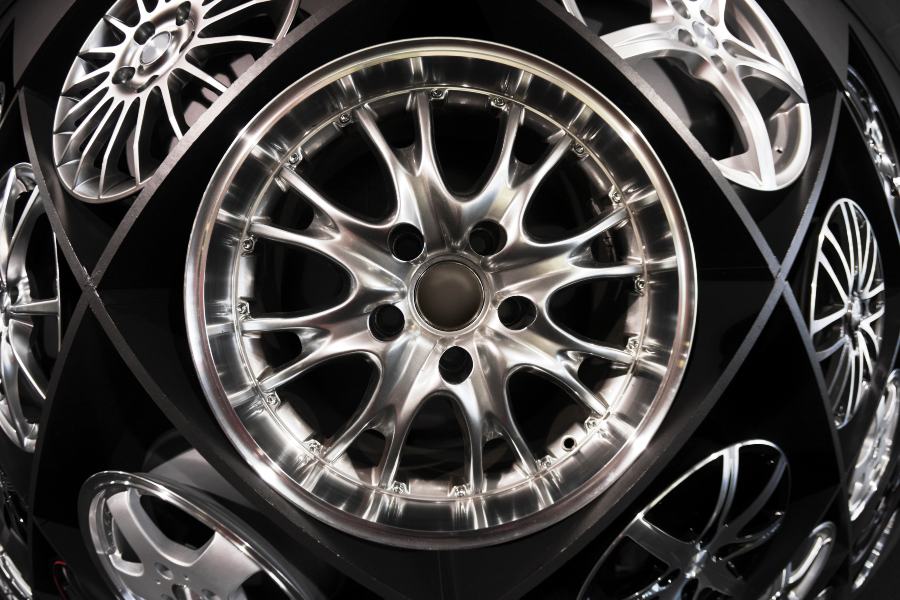Do Aftermarket Wheels Affect Resale Value?
Many drivers enjoy making aesthetic and performance upgrades to their cars but some aesthetic changes might not necessarily pay off in the long run. When it’s time to sell the vehicle, car owners want to be sure that the improvements they have put into their car have the ability to enhance the resale of their car, or at least not negatively impact what a private party or dealership will pay.
Aftermarket wheels are a common upgrade that many car owners and enthusiasts consider. Industry reports indicate aftermarket wheels are so popular that they comprise annual sales of over $6 billion. Despite this impressive amount, do aftermarket wheels actually increase the value of a vehicle?
What are Aftermarket Wheels?
Aftermarket wheels are wheels, also known as rims, which are sold by custom wheel fabricators, not the stock wheels that are sold with a new car when it rolls off the assembly line and to your local dealership. The latter are known as OEM wheels, which stands for original equipment manufacturer.

Pros and Cons of Installing Aftermarket Wheels
The impact of installing aftermarket wheels on a vehicle can vary based on several factors. First, let’s look at some of the positive effects this alteration can have on a car’s resale value.
- Visual Appeal – Because wheels contribute to the overall aesthetic of a car, upgrading from the factory stock wheels can provide a noticeable improvement to the vehicle, making it more attractive to potential buyers. If your wheels have been damaged in a road incident, or just scratched and dinged from parking too close to the curb a few too many times, they may need to be replaced.
- Unique Style – If the aftermarket wheels are high end, sporting a one-of-a-kind style, they could make the car stand out from others of the same make and model. This cool factor might just reel in buyers who appreciate personalized touches.
- Performance Improvements – Some aftermarket wheels are designed to be lighter and more aerodynamic, which can lead to better handling, improved fuel efficiency, and enhanced overall performance. Performance-oriented buyers might see added value in performance-oriented wheel modifications.
So far, so good, right? But there can also be downsides to swapping out the factory-issued wheels on your ride. Some potential negatives could include:
- Compatibility and Fit – If the aftermarket wheels are not chosen properly, there could be issues ranging from offset, bolt pattern, and sizing that could lead to some performance issues. Pick the wrong wheels and you might begin having issues with the wheels rubbing against the fenders, affecting the suspension, or even causing safety issues.
- Performance Issues – In the same way that the properly chosen set of aftermarket wheels can improve vehicle performance, making the wrong selection can hamper performance. Wheels that are too large or heavy can slow your car down by increasing resistance by increasing the weight of the car. The extra weight can also affect the car’s suspension, contributing to worse road grip, poor handling, and decreased fuel efficiency.
- Warranty Issues – Car makers design their car suspensions around specific ranges of wheel and tire diameters, even factoring in wheel stiffness. In some cases, choosing the wrong aftermarket wheels could result in a voided manufacturer’s warranty, especially if the modification is found to be responsible for hampering acceleration or increasing braking distances.
- Aesthetics – In the same way that performance issues can be either better or worse depending on the choice of aftermarket wheels, the appearance of the wheels can also be a mixed bag. Some buyers might have an expectation that the used car they purchase will feature the total look and feel of the original factory stock – even the wheels.
- Cost – Lightweight aftermarket wheels that are the perfect fit and style for your vehicle might come as a shock to your wallet, ranging up to hundreds of dollars apiece, sometimes even more. You might be able to sell your factory stock wheels, however, to help defray some of the cost.
As you can see, the effect of aftermarket wheels on a car’s resale value can be mixed. If the aftermarket wheels are chosen thoughtfully, installed properly, and enhance the overall aesthetics and performance of the car, they could potentially have a positive impact. However, if the modifications are poorly chosen, not well-executed or are too extreme, they might deter potential buyers and have a negative impact on resale value.
The Bottom Line
Aftermarket wheels can be a great addition to a vehicle and may even tip the scales to commanding a better resale price – but only if chosen and installed correctly. This is where the experts at Tire Pirates in Foothills and Chinook, Calgary, AB can help. Whether you are replacing damaged factory issued wheels or looking to enhance your fuel economy and handling performance, the qualified technicians at Tire Pirates can make sure your new wheels are properly selected and professionally installed to make sure that your car can command the best possible resale price. Schedule your appointment now!
RECENT POSTS
categories
- Uncategorized
- Air Pressure Tires
- Winter Tires vs. All Season Tires
- All weather tires
- Custom Wheel Options
- Brake Pad Replacement Calgary
- Spare Tire Replacement
- Temporary Spare Tire
- Tire Alignment and Balance
- Getting Tires Fixed
- Do My Tires Need To Be Replaced
- Tire Repair in Calgary
- Transmissions
- Wheels and Tires
- Engine Light
- Car Battery
- Fuel Efficiency

